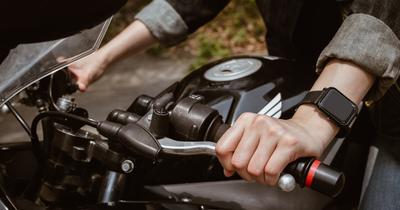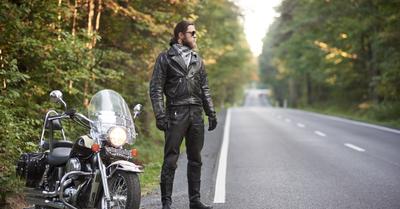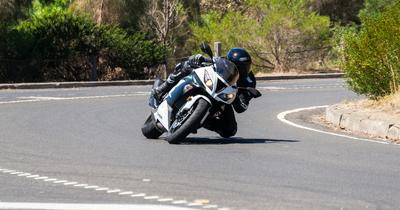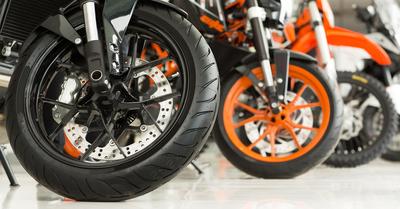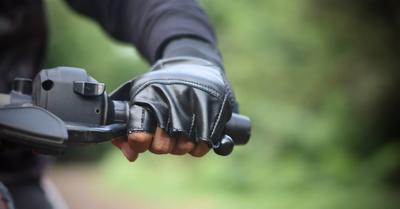Motorcyclists are More Likely To be Injured or Killed than Cars
Motorcycles lack the safety features of a car, such as airbag systems and anti-lock brakes. Even more dangerous, they often do not have a steel cage. This leaves riders exposed to the elements and less likely to survive a crash. The lack of protective features means that motorcycles are far more dangerous than cars. As a result, they are 5 times more likely to cause an injury and 35 times more likely to cause death.
The majority of motorcycle fatalities result from collisions with other cars or vehicles. One-third of fatal motorcycle accidents involved another vehicle. Another third occurred in collisions with trees or fences. According to the National Highway Traffic and Safety Administration, motorcyclists are 28 times more likely to die in a traffic crash than drivers of cars or light trucks. In some cases, motorcycle riders are even hit by large trucks.
Although motorcycle accidents are still more dangerous than cars, they are not as frequent. Statistics show that motorcycles account for 14% of all vehicle accidents. Fortunately, advances in technology are slowing the rate of motorcycle accident fatalities.
Despite these stats, there are still numerous ways to protect motorcycle riders. By following a few simple tips, you can reduce your risk of death in an accident. If you are a motorcyclist, safety is the first step.
They are Cheaper to Insure
If you've been pondering whether or not to buy a motorcycle, then read on. The costs of owning a motorcycle are considerably lower than those of owning a car. In fact, the cost of a motorcycle is usually under a thousand dollars.
However, you will have to invest in protective gear, such as a helmet and gloves, as well as insurance for the bike itself. And because motorcycles require more maintenance, insurers do not charge as much as cars. In addition, the insurance will generally cover medical bills as well. That means that you won't have to pay for hospitalization coverage separately.
Insurance rates for motorcycles vary considerably, based on the engine size and type. The smallest engines are less powerful and, therefore, cheaper to insure. The highest-priced motorcycles are those with engines of over 650cc, including sports bikes, which tend to have a lot of power. Furthermore, these bikes are also commonly used for racing other motorbikes, which dramatically increases their risk of an accident. Since the insurance company assumes the risk of an accident with a motorcycle, the price is much lower.
If you don't own a garage, you can still get a discount on your motorcycle insurance by renting a garage within a mile of your home. However, you'll need to inform your insurer that you don't own a garage and that you rent one nearby. If you're a young person, you can expect to pay twice as much as a 30-year-old. After 35 years, the cost of insurance will equalize out.
They are Safer on the Open Road
Most people believe that motorcycles are safer on the open road than other vehicles, but this isn't always the case. Drivers must pay extra attention when they are riding, because a motorcycle's handling abilities are not nearly as refined as a passenger car. Also, a motorcycle's headlights can blend in with other vehicles' lights, so motorcycle riders should avoid riding at night or at intersections.
In addition, motorcyclists are not distracted by cell phones or music, which helps to reduce their risk of an accident. Drivers of cars are prone to text, adjust the volume of their music, and use their cell phones while driving, but motorcycles are designed to be more focused on the road. Another benefit of motorcycle riding is that they are more agile and have higher acceleration ability than other vehicles. This gives them a better chance of avoiding objects and preventing dangerous collisions with other cars.
As a motorcycle rider, you should be aware of road hazards, particularly on hot and rainy days. Motorcycles are half as stable as cars, and they don't have a windshield. In addition, motorcycle riders are more exposed to the elements, and bad weather makes visibility almost impossible. Rain is one of the rider's worst nightmares, and riding in it can make the experience painful. A motorcycle safety kit is a good investment in your safety, health, and peace of mind.
Although many accidents on the road are avoidable, there are some precautions you can take to reduce the severity of your injuries and minimize your risk. Motorcycles are not for reckless people, and you're the primary shield against harm. Even though motorcycles have no glass or metal coverings, they still pose a significant risk. So, it's important to take precautions and practice defensive driving. And remember to be courteous to other drivers and follow the rules of the road.
They Retain Value Better
Compared to car models, motorcycles retain value better than cars. While carmakers are constantly improving their products, some innovations aren't worth the cost, especially if they don't add much value to the overall performance. A used bike market can be a huge money-saver if you're on a budget, but even a low-tuned motorcycle can still retain its value for years.
There are many benefits to riding a motorcycle, including the fact that they're easier to park and maneuver through traffic. Because motorcycles use less gas, they have lower emissions, which makes them more environmentally friendly. A motorcycle also offers more thrills than a car, and they tend to hold their value better than cars. Motorcycles are also much easier to customize. They are also easier to sell than cars. They're cheaper to buy and maintain, which is a plus for many buyers.
Although motorcycles depreciate over time, their resale value tends to be higher than cars. In the west, motorcycles are used primarily for recreation, while in India and other developing countries, many people use a motorcycle to commute to work. The production of motorcycles is driven by demand, so an old motorcycle may have a higher value than a new one.
Harley-Davidson motorcycles tend to retain their value the best. These motorcycles are not only well-made but represent American values. Because they are low-volume, they are rarer and have a much lower production cost than most cars. Moreover, you'll be able to get a good return on your investment. BMW, on the other hand, is the second-best motorcycle brand, with its price tag retaining 77% of its original value.
They Save Time
Motorcycles can cut your travel time in half if you are using freeways. You can easily squeeze through the crowded lanes and maintain higher speeds than cars. Motorcycles also don't have to wait for traffic to pass. If you are in rush hour, you can avoid it and cut down your travel time. Then again, you can only save money if you commute by motorcycle.
A motorcycle is cheaper than a car. Even a cheap motorcycle designed for city use can cost less than $5,000. Parking costs are also lower compared to cars. This means that a motorcycle commuter will save a lot of money on gas. If you are on a budget, you may want to consider a motorcycle if you don't have a lot of money.
Lastly, motorcycles are less expensive to own and operate. Compared to cars, they require less maintenance and are much faster. They're also fun to ride, which is something that a car simply cannot offer. These are just some of the benefits of owning a motorcycle. The choice is ultimately yours but consider these pros and cons first.
Conclusion
A motorcycle is a convenient mode of transport. Motorcycles have smaller environmental footprints and are much easier to park. They can be tandem, which allows you to share a ride with another rider. Moreover, they can fit in tighter spaces, which is ideal for commuting. Moreover, motorcycles can help you get in touch with people. Humans are social creatures and hunt in packs. This is why motorcycles are so desirable.





